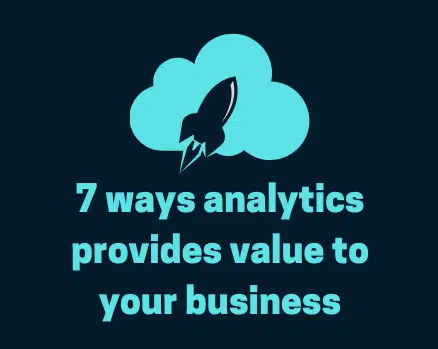Businesses use data daily to understand their customers better, increase their ROI, and inform more accurate business decisions. This use is often derived through raw data or only a partial view of your data. For example, looking solely at your CRM doesn’t help you understand a customer’s annual value unless you pull up your order processing platform to get a side-by-side view of the customer. We call this the Customer 360, and these 360-degree views can live across your entire organization.
Data analytics is analyzing multiple data sources in a single view to understand the different parts of your business better. Data analysts will help a business reach this understanding through historical analytics that shows trends over time, predictive analytics that attempts to inform the company on what might happen based on trends in your data, and prescriptive analytics that seeks to provide your business with the best course of action to take when making a decision.
Because these data analysts rely on data and modeling typically developed by a data scientist, many organizations are challenged with scaling analytics to reach every employee or to realize the total value of their data. Additionally, a large amount of data a business may generate over time can add additional complexity to this role that can be difficult to navigate without the right strategy and architecture.
According to a Finances Online report, 63% of companies say that improved efficiency is the top benefit of data analytics, while 57% say more effective decision-making.
– Finances Online
Driving adoption of democratized data and why it matters
More executives are encouraging their employees and teams to make better decisions by adopting and using data. Starting small and creating immediate value for analytics can promote a culture of data growth and drive new and innovative ways to leverage your company’s data. An organization that pushes for a Data Culture through collaboration and engagement can improve decision-making, remove barriers and silos within the organization and increase collaboration across departments.
The key to driving the adoption of analytics in your organization is through self-service analytics using tools like Tableau or Count. These tools make it easier to break down the barrier to exploring your data and empower employees and teams who might not be trained in data analysis.
How to drive value through data analytics
1. Improve and optimize operations
Tools like Excel or data marts are cumbersome and require a lot of manual effort from the employee. A lot of time can be wasted pulling data into a financial report each week from multiple sources and creating manual pivots and calculations to create a picture of a company’s P&L. It isn’t uncommon for a financial analyst to spend over eight hours each week building reports in Excel that could be automated through the implementation of a data analytics tool.
2. KPIs to help measure success
Analytics and clearly defined KPIs can help your teams visualize their success in reaching their goals. Groups can interact with the data to find areas to improve self-efficiency, know if they are staying on-brand, and understand department operational efficiency.
3. Democratize data within your organization
Giving your team access to data in a format that is easy to consume and understand can help drive better decisions in the future. By leveraging data pipelines to bring a consolidated view of your data into a single source, teams can become less reliant on other departments in your organization to get the data they need to be successful.
The most significant risk to an organization adopting better data intelligence is a lack of data access, resources that can not meet the demand of serving data, and a culture that doesn’t appreciate the value of sharing data across the organization.
4. Generate operational efficiencies
Staffing is the single most significant strain on a company’s budget. Optimizing how your staff spends their time while at work provides an opportunity to increase operating margins and reduce resource waste. When your team has to spend less time looking for the information they need, they can spend more time on their objectives and OKRs.
5. Enable self-service of your data
Giving your employees the tools they need to explore data on their own empowers them to solve their problems and discover insights faster. Employees can rapidly jump in and gain immediate value from your data by providing out-of-the-box dashboards to jumpstart their analysis by maintaining a comprehensive dictionary of metrics and dimensions.
6. Maximise customer value
When you can get a 360-degree view of your customer and share that with every department within your organization, you can quickly identify those customers who are likely to bring you to repeat business. This allows you to target your business operations to where they will maximize value and build long-term relationships with customers that might otherwise result in customer attrition and a loss of repeat business.
7. Cut down on repeating mistakes
Analyzing historical data can ensure that your efforts are working and help cut out strategies that don’t work. It can also hold teams accountable for ensuring they are focused on looking at the decisions they have made in the past and are improving on bad decisions while driving repetitive use of decision-making that has a history of driving value.
Your solution to success
Understanding how to build an analytic strategy can be complex, requiring a dedicated allocation of your resources and resource time. Get there faster with tailored solutions that will enable more informed decision-making and give your team a lens into KPIs that help to drive revenue and efficiency. Contact us today to speak with one of our experts who can help you with your transformation in the Intelligence Economy.



